Concussion Story is an honest and safe space to share your Post-Concussive journey with the world. Conceptually, Jessica thought of this space during her own Post-Concussive recovery. The comfort of sharing Post-Concussive stories and symptoms with others who were able to identify, relate and understand this unspoken language of Concussion or Traumatic Brain Injury (TBI) was incredibly comforting during a stressful and scary time. This shared space is intended to help others living with TBI and it’s after effects form a sense of community in a collaborative and shared space.
If you would like to share your story or know someone who would like to contribute please email Jessica at Jessica@PT2Go.co
Meet Casey Andrews!
I’d like to take a moment to introduce Ms. Casey Andrews. Casey is an incredibly bright, brave, and eloquently spoken young woman who endured a concussion 9 months prior to this article being written during her senior year of high school. Casey’s Concussion Story and Post-Concussive Syndrome (PCS) journey is a long and arduous one; however, I’d like to bring her story to light because it mirrors a majority of fellow PCS survivors. Her tenacity, resilience, and drive allows her to share her experience and help others who may be going through this unfortunate process identify and cope with their own similar life circumstance. It is Casey’s resilience and her ability to be so in tune with her body-physically, cognitively, and emotionally-that I believe will help healthcare professionals, PCS survivors, and PCS support team members learn how to identify, manage, and cope with this all encompassing injury. Without further ado, I would like to introduce Ms. Casey Andrews and her Concussion Story. ~JS
*Names have been changed for privacy
Everything in my life drastically changed on June 15th, 2014.
My brothers asked if I wanted to come to the nearby field to play some football—obviously I was down for that! Without thinking twice I changed into my workout clothes and grabbed my running shoes. It was going well until I turned around-at the worst time ever and I got nailed in the head with the football.
My brother can throw pretty hard, and as a result, I fell to the ground. I remember looking around and nothing looked right—it felt like I was in a different world. I saw stars, had ringing in my ears, and a bit of a headache. At this point in my life, I really did not know much about concussions. I had the (unfortunate) mindset of “toughing it out”, after all, I just got my “bell rung”, and I was young and unstoppable. I got back up on my feet and continued doing sprints and pushups.
Before June 15th 2014 I was very outgoing, active, and a social eighteen year old. I loved running and would run usually every other day. I was training to do a half marathon and didn’t want to stop training until I reached that goal.
My symptoms didn’t come on strong until a couple days after the hit. Because it wasn’t immediate, I continued my normal routine of going on runs, going to school, studying for exams, and hanging out with friends.
Now I know I obviously should have been resting the whole time.
After school one day, everything hit me. I could hardly stand up without being so off balance and dizzy. I had a horrible headache—it felt like knives were stabbing me in the head. I had ringing in my ears, brain fog, zero concentration, nausea and extreme light and noise sensitivity.
I curled up into a ball in my dark room and had no idea what was wrong with me.
I was so severely nauseated that I thought to myself “this must just be the flu, it will pass in a couple days”. Due to the fact that I had the “tough it out” attitude, I went to work for my (what was supposed to be) eight hour shift. By the end of the first hour I had to leave. I couldn’t stand up any longer; I felt like I was going to fall over. I remember feeling as if I was in a dream, everything seemed to be in slow motion and nothing was real. My headache got worse and worse as more time went by, I realized I physically could not stay, so I went home. After a few more weeks of not getting better I had to quit my part time job.
I pushed myself to go to school (the last day before exams). In one of my classes, I bent down at the same time as a classmate and we hit heads very hard, just what I needed.
I went to a nearby walk-in clinic explaining that I got two hits to the head within about a week from each other. The doctor told me I most likely had two concussions and I needed to rest both physically and mentally.
Being as active as I was, my number one worry was, “When will I be able to run again?”. She told me I should be better in a week, which eased my mind.
A week of rest…I could handle that, I thought to myself.
The week went by. I still wasn’t better.
I researched more information about concussions and learned that sometimes it can take more than a week to recover, sometimes it takes two or three weeks.
I was very frustrated at this point, so I went to my family doctor. He told me I needed a CT scan; I got one and it came back normal (which is usually the case for concussions). He told me to keep resting until I “felt normal” again.
Days, weeks, and soon months went by.
I clearly remember month 2 of my concussion. I was lying in bed, and just completely broke down. How could this happen to me? I’m eighteen years old; I’m supposed to be out having fun, playing sports, and living my life!
I then learned about post concussion syndrome (PCS). “The symptoms of a concussion can last many months, or even YEARS for about 10-15% of concussion sufferers”. Reading that sentence made my heart sink. It felt like all the energy just drained out of my body; I collapsed on my bed in disbelief.
When many months had gone by at this point, it was really difficult for my family and friends to comprehend what I was going through.
Most people have the mindset that concussions all resolve themselves within a week or so. This was not the case for myself and about 15% of other people who suffer from concussions, however. It is extremely difficult because on the outside I look normal.
Other people look at me and don’t think twice that I am greatly suffering.
I obviously don’t wear a cast on my brain like a person would if they broke their leg. This is one of the most frustrating parts of everything: people just do not understand.
Many times I have been told to just “push through”, “suck it up”, “just get back out there and start living again”.
I wish more than anything that it were as easy as that. I wish I could just shake it off, get back out there and back to living my normal life again, but I physically cannot.
Months went by and I still was not getting better. I had to withdraw from University due to the fact that I could not concentrate at all, had intense headaches, ringing in my ears, brain fog, and extreme noise and light sensitivity.
I went to many doctors including a neurologist.
The neurologist told me “I might as well go to work and get a little jingle in my pocket”. What?! If I could go to work I would, but with all these debilitating symptoms even going on a walk was hard for me to do at this point.
I could not leave the house without sunglasses. I saw an optometrist to see if anything was wrong with my eyes, fortunately I still had 20/20 vision.
I went to an ear nose and throat specialist, who was also not helpful for me at all.
The Concussion Clinic that I went to was ironically also not a big help. He made me feel as if my symptoms were all in my head. He told me it was most likely anxiety. In reality, my symptoms were causing me to have anxiety, not the other way around!
The one piece of good advice he gave me was to slowly start aerobic exercise. I went on a stationary bike for 15 minutes per day, and depending how I felt each week would increase the time by 5 minutes until I was on the bike for 30 minutes per day. I am now up to 30 minutes per day on the stationary bike. I am very thankful for this because I can’t imagine not being able to exercise, so this was a big step for me. I additionally go for about two 20-minute walks per day.
Along with the many physical symptoms that PCS causes, there are also emotional symptoms. How can you feel good when you’re not able to live your daily life? How can you not feel a bit anxious going into a grocery store, mall, or restaurant knowing that doing so will exacerbate your symptoms? This is a very difficult part of PCS that definitely is not talked about as much, but certainly needs to be addressed.
So here I am, 9 months later. This is definitely the worst thing that has ever happened to me. I still get most of the symptoms that I previously talked about, but have more “good days” here and there. It is hard not to do a lot on the good days, though, because all I want to do is dance in excitement and do “normal” things again.
The downside to taking advantage of the good days, however, is paying for it for many days after. If I go out and “live it up” on the days I don’t feel too bad, I am a wreck for at least a week after. Everything has to be done in moderation, and I need to take many breaks from whatever it is that I am doing.
I hope one day soon I can say this is all in the past.
One thing I know is that when this is all over with, I will never take my health for granted. Good will come out of this difficult situation, and give me a whole new perspective on life.
My dream has always been to become a police officer. Since grade nine I have been working towards achieving this goal. I even took part in a summer job called “Youth in Policing” the summer before my injury. It was the summer of a lifetime for me!
I am confident that I will still one day reach my ultimate goal of becoming a police officer, there are just more road blocks in the way than I expected.
One quote that I really like through this long journey is by Asha Tyson:
Your journey has molded you for the greater good,
It was exactly what it needed to be.
Don’t think you lost time.
It took each and every situation you have encountered to bring you to the now.
And now is right on time.
Casey Andrews Concussion Story: Video Diary
Meet Nick Mercer!
I’d like to take a moment to introduce Nick Mercer. I met Nick via social media during my own Post-Concussive recovery when I was scouring the internet for anything I could learn about Post-Concussive recovery from a survivors perspective. I was drawn to Nick because of his incredible candor and enthusiasm about life and sharing his story with the world. Nick’s Concussion Story is all encompassing. His story shares the struggle of overcoming the initial denial often faced with a life changing injury and takes you on the journey to his present day life living independently and practicing Pilates regularly. Cheers to Nick and his story of adapting to a new normal with a positive outlook in an honest and candid way inspiring others to take their journey of recovery one small step at a time. ~JS
The summer of 2003 was very exciting. I had recently moved from my hometown of St. John’s Canada to Victoria, British Columbia to start my Master’s Degree in Public Administration at The University of Victoria. I was always athletic and had recently taken up the sport of cycling. My love of cycling led me into triathlon training and I was in the best shape of my life.
On August 1, 2003, I was on my usual two to three hour practice ride when I crashed into a tree. Despite the fact that I was wearing my helmet, I ended up in a coma for the next two weeks.
This is where my journey with TBI and my Concussion Story begins.
I was in the hospital (ICU, Neuro) for two months before I was flown the ten hour journey home. I spent the next month in a hospital waiting for a bed to open up in rehab. While I waited in that hospital, I remember desperately trying to convince a friend to get me out of there. It was a Friday evening and I told him that he’d have to give me a piggy back ride to my parents house because I couldn’t walk right now, and that while I probably wouldn’t be able to go downtown to the bars that night I’d be fine by the end of the week.
What’s important to note about this memory, is that six weeks after my initial injury I had no real grasp of the extent of my condition. As weeks passed, I came to the realization that I wasn’t getting out of the hospital as quickly as I imagined and as the realization dawned I became frustrated, depressed, anxious, and ultimately singularly-focused.
A catalogue of the reasons I couldn’t leave the hospital:
•Vision: I had double vision that I was told would correct itself spontaneously. It didn’t.
•Sleep: It didn’t come easy. It was difficult, tiring and frustrating just trying to sleep.
•Coordination: My left arm was slow and clumsy.
•Speech: My words were garbled and slurred.
•Walking: Simply put, I couldn’t.
I was in the best shape of my life when I was brain injured and I was certain (not hopeful, but certain) that I’d be walking, if not running, out of rehab by Christmas. But that didn’t happen. So I tried to find something positive to grasp onto. I took my first small and unsteady steps just before Christmas and I was allowed to go home to sleep at my parents’ house for a week to celebrate the holiday. These were small things, but they were something to count as successes.
When I got back to rehab after Christmas, I focused all of my energy on physiotherapy, walking again, and the goal of getting back to some semblance of my life prior to the accident. So when physiotherapy or anything related to my physical recovery didn’t go well, I considered the whole day a failure.
When I went for the first time to the pool to do physio and exercise, I thought it would fix everything. I was a good, confident swimmer from my nine years of water polo and seven months of triathlon training. Walking in the shallow end of the pool was more difficult than I had hoped, but I was still excited to try to swim across the width of the pool. It was one of the most depressing and infuriating experiences I’d had in rehab. I barely made it across the width of the pool. I couldn’t control my arms, they were flapping wildly through the water, and my legs wouldn’t kick. Despite the overwhelming emotions I dealt with afterward, I didn’t give up. I continued to go to the pool when rehab offered it and my experience slowly improved.
My physiotherapy took a real jump when I was discharged from inpatient rehab to outpatient rehab (outpatient was full day rehab for the first 10 months). When I was discharged from inpatient rehab, I was in a wheelchair. I was able to use a walker to help me move around the rehab facility, from session to session or for supervised walks down the hall. But when I got to outpatient rehab, my physiotherapist took the walker from me and I walked, supervised, with a belt while inside the rehab facility. My physiotherapist was amazing and challenged me continuously.
After 18 months in outpatient rehab, I returned to Victoria, BC to complete my Masters in Public Administration (MPA). After receiving my masters, I got a job in Ottawa and worked there for three years before returning home in 2010. That period of my life was difficult and lonely because I felt a gap opening between my friends and me. They were still incredibly supportive, but they had very social, active lives and I was still focused on my recovery. While they could go out to bars, meet girls, play sports, I wasn’t comfortable going to bars. I moved slowly and my speech was slurred, basically dysarthric, so even approaching new people, especially women, was extremely difficult for me.
It has been quite the journey getting from 2003 to where I am now. I am feeling more confident and comfortable with my situation today, but it’s very much predicated on my physical abilities. Living alone has forced me to challenge myself to do the normal everyday tasks. I may never be the same person that I was prior to the accident, but I think the key to finding new happiness is searching for things that my abilities allow – like discovering Pilates.
I first went to Pilates based primarily on the encouragement of my sister. I kept going because it teaches movement exercises and mechanics that are challenging, yet akin to what I did in physiotherapy years ago.
I began Pilates two years ago and its benefits to my physical abilities and to my confidence have been enormous and it’s now an important part of my life. I recently completed a Pilates teacher training course and I want to show people, whether dealing with an injury or not, how moving and moving efficiently with stability can improve their fitness and general sense of wellbeing. Pilates is now like a new physiotherapy session for me, and one that I can now teach myself; although I prefer the social aspect of going to the Pilates studio.
I have also gone to a speech therapist recently. My speech therapist has encouraged me to really monitor myself, so that days when I notice my speech is a bit more challenging or difficult to understand, I practice enunciating for a few minutes and it helps tremendously.
I’ve noticed throughout my recovery, keeping healthy and fit helps me manage my symptoms whether they are physical or speech related. It’s 11 years later and I continue to find new activities that keep me happy, motivated, and productive physically, socially, and emotionally. Thanks for letting me share my story! ~Nick
To learn more about Nick Mercer and his incredible journey of recovery please visit his website: www.concussiontalk.com
To read his newly published eBook, please visit: https://leanpub.com/detour
Meet Sally Francklyn!
I’d like to take a moment to introduce Sally before you get to know her through her own journey of recovery. I came across Sally’s incredible story as I was going through my own acute stages of TBI recovery. What I was able to gather before I even met Sally was that she was a motivated, kind, and positive young woman who was able to overcome incredible obstacles placed in front of her. After a head injury, we all have such different journeys; however, there is this connection that we all seem to share that is palpable and calming. What I’d like you to focus on is Sally’s incredible resilience, strength, and positive outlook on life. Essentially we learn to live in a state of “new normal” and Sally is a wonderful example of embracing the now and the future. Without further ado, I’d like to introduce Ms. Sally Francklyn and her shared story. ~JS
I began skiing when I was three years old, and it was a major part of my life. I skied patrol in Colorado, before, during and after college, and travelled the world to ski in countries like Chile and New Zealand. Skiing got me surrounded by close friends, and for me it was an activity that I loved doing. It made me able to do things that I still consider the best parts of my life – like when I skied The Remarkables, New Zealand. My friend and I hiked up to where we wanted to ski. I paused at the top overlooking Lake Wakatipu. It was the kind of view you have to take a moment to truly enjoy.
After college, I turned my love of skiing into more than just a passion, and landed a job as the online editor for Ski Magazine. The dream job afforded me wonderful opportunities such as getting hired later on as the public relations account executive for major ski companies like Arc’teryx and Nordica.
In 2012, I was living and working in Jackson, Wyoming and I absolutely loved my life. Unfortunately, I was only able to enjoy it for a month and a half. On Saturday, March 24, I was headed out to ski with a few friends. We rode the Jackson Hole Mountain Resort tram up the mountain. Once we were at the top, we started hiking to the backcountry run. When we got to the top, my friend went first. He took his run and then signaled that it was okay for me to ski down. I took a few turns, and then I think one of my skis may have fallen off, and I ended up sliding downhill for almost 900 feet. I finally came to a stop by bashing my head on a rock. My friend below had to hike up to me, and my two friends above skied carefully down.
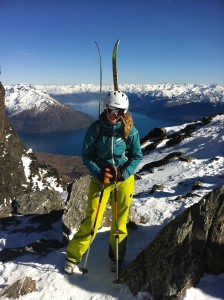
Sally in New Zealand enjoying the view!
I don’t remember any of that day. My memories of that day are all from the perspective of my friends. I consider myself lucky that I don’t remember the fall. I was wearing a helmet, that’s the reason I survived. I was taken by ski patrol to where the Flight-For-Life could pick me up. After two flights, I was transferred to the hospital where I would stay in an induced coma for the next three weeks. I was then flown to a different hospital in Colorado Springs.
After being hospitalized for about five months, I was discharged and went home to my parents’ house, which was not far from the hospital I had been at in Colorado Springs. Home is where my life changed drastically.
My symptoms and residual deficits have varied and changed over the months since my injury. For one, I have vision issues. I had poor vision prior to the accident and had to wear glasses or contacts, but after the accident I was diagnosed with diplopia or double vision. Prior to the accident I had taken for granted that my eyes had naturally merged two views into one. Another life change I had to accommodate to is that I was right-handed before my accident, and now I am left-handed. That makes signing receipts (and all other types of handwriting) extremely difficult. I also struggled with depression, which was not at all a part of my life before my accident, so I now take medicine to help with that.
I broke a lot of bones in the accident – my neck, back, and ankle, plus I shattered my helmet. Breaking my back during the accident meant that I had to have surgery, and as a result my back hurts more regularly than it used to. I’m tall, but I lost an inch of height during the surgery. Things are not the same as they used to be (i.e. I walk differently now), but I also realize the results of my accident could have been much worse.
Although this traumatic brain injury changed my life in many ways, there are a lot of things that have improved since the accident. I used to love to cook and it still makes me happy to be in the kitchen. I also came to realize how important friends are and mine have been steadfast through my recovery. I’ve also grown much closer to my family. My brother lives in a city nearby and my parents are only an hour and a half drive away.
I couldn’t have come as far as I have since my accident without my family. They’re part of the reason I came out of the hospital in the condition I did. I remember my brother visiting me for a weekend every now and then, and my mom was there every day and my dad was there every night. Now, I’m kind of getting back into the things I love doing – going to the gym, coffee shops and cooking.
Physical therapy is what helps me improve in the little things. My balance and walking are quite different from the way they used to be, but every time I see a doctor in the hospital they comment on how great my walking is. Physical therapy is what has gotten my walking ability to where it is now. I have had headaches since my accident, but now they are mild and they go away with a couple of ibuprofen, or even sometimes on their own.
I didn’t have any challenging moments in therapy or at home. Yes, things are very different than the way they used to be, but I never thought how bad things were, or how great things used to be. If I did, I would dwell on how great my life used to be, and now I only focus on the future. Things will be harder for me in the future, however, that doesn’t prevent me from doing them – I just have to find new ways to work around the challenges.
Even though I had a life-altering injury, I take a step back and realize that although things have changed, some of them are for the better. I wouldn’t wish a TBI upon anyone – it completely changed my life. I try to look for the positive in every situation. As I continue physical therapy to regain and even further my mobility, I continue to write, go to concerts, cook for friends and family, and appreciate everyday. I know I will continue to improve and make gains throughout the little things in my life, and for this, I consider my recovery to be a success. Thanks for letting me share my story. ~Sally
To learn more about Sally Francklyn and watch her incredible journey of recovery please visit her website.

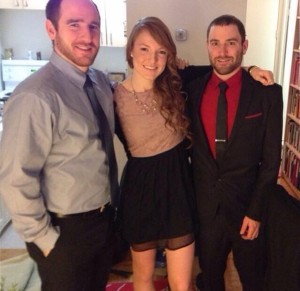
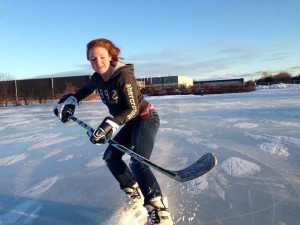
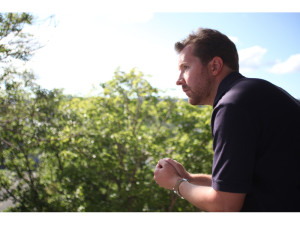
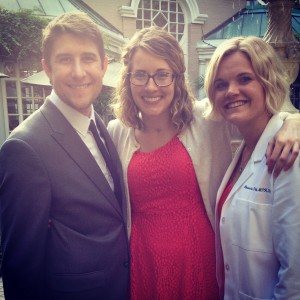
Pingback: Great Physiotherapy Site! - stopconcussions.comstopconcussions.com
Pingback: Great Physiotherapy Site! - stopconcussions.destopconcussions.de
Thanks for this site, and your stories. I am having a hard time recovering from PCS. I may try to tell my story soon.
Thanks so much for stopping by Dawn! Absolutely. Whenever you are ready, I would be more than happy to aide and guide you through a very empowering process and journey. Cheers to you on your recovery. Best wishes from NY
Am I missing something? Where’s the Meet Jessica story?
I don’t know if you realize how powerful a space like this can be. Lovely idea and one that I hope continues to grow and help many more people dealing with concussion issues.
I lost a lot of my normal speech, I became extremely irritable. It was weeks before I could laugh. I was just a shell. I had to go to speech therapy, vision and hearing therapy, PT, regular doctor visits weekly. I was not allowed to be out in direct sunlight to avoid my scar turning dark, I couldn’t drive for 3 or 4 months and wasn’t allowed to lift more than 10 pounds. I was 42 at the time. I am now almost 62 and I still have problems with word finding and am still not the person I once was. Now I seem to cry with little provocation, I still have some memory loss and my hearing and vision still are not normal. The doctor who treated me passed away suddenly several years ago and I have never sought any medical treatment. What do you suggest I do? Should I continue to suffer in silence?